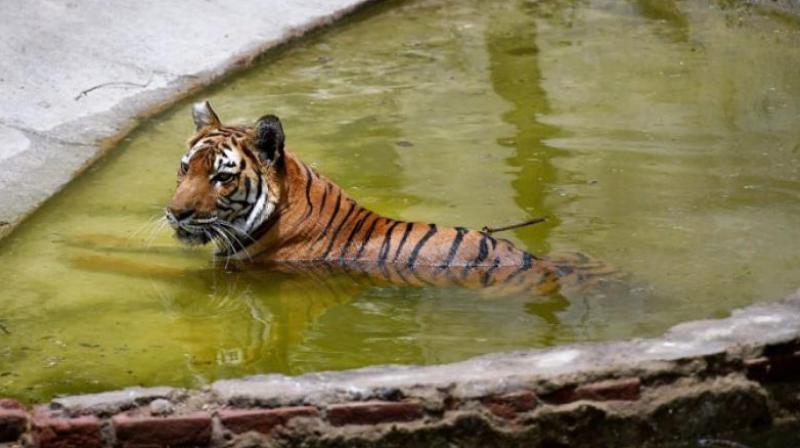Delhi zoo is looking for mates for most eligible single animals
The National Zoological Park has two female rhinoceros, a female hyena, and one male each of African elephant, panther, jaguar.

New Delhi: Many of Delhi zoo's crowd-pullers are facing a peculiar situation—the problem of missing mates.
The National Zoological Park has two female rhinoceros, a female hyena, and one male each of African elephant, panther, jaguar. All these animals are missing a mate.
The outbreak of bird flu at the zoo, which claimed the lives of 14 water birds last year, has only added to the woes.
"The zoo exchange programme has gone for a toss since the bird flu outbreak last year. No new animal or bird has reached the zoo since then," a zoo official confirmed.
The mother-daughter rhinoceros duo of Anju and Manju have not had a male companion for many years. African elephant Shankar, which was gifted to the zoo by former President Shankar Dayal Sharma in late 90s, has been lonely since his partner Bombai died a few years later.
Shankar was also in the news recently for turning violent and injuring his caretaker. Experts say animals in captivity tend to get restless and exhibit behavioural changes in the absence of companions.
"Animals without companions are prone to stress. They may exhibit violent behaviour as they are unable to socialise. In some cases, it may be fatal. It can also affect the breeding population considerably," Renu Nair, a wildlife expert, said.
As per the guidelines issued by the Central Zoo Authority (CZA), zoological parks are not supposed to keep single animals for more than six months. They must make arrangements for procuring viable partners.
But the zoos usually hesitate to part ways with their animals if they are unable to get star attractions from other zoos in exchange. The trend is usually followed in case of bigger animals like tiger, lion, panther, etc.
"The zoo exchange programme is a cumbersome process. Generally, surplus animals are exchanged among the zoos. The authorities usually do not encourage transfer of big animals as the logistics involved is tough and also they do not want to lose their star attractions," the zoo official said.
Renu pooh-poohed this view and said such an attitude was detrimental to wildlife conservation. "Keeping single animals in captivity for long is detrimental in nature. It prevents the zoos from maintaining a viable breeding population. The zoos should not hesitate to pool in animals," she added.
The Delhi zoo has been under a cloud for a spate of animal deaths recently. A total of 14 water birds died in October last due to the outbreak of H5N8 avian influenza. The zoo's only four monitor lizards died earlier this month.
A total of 46 spotted deer died last year. Apart from these animals, a baby gibbon and a grey partridge bird also died at its enclosure last year.

